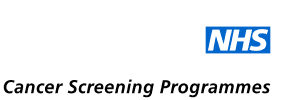Liquid Based Cytology (LBC): NHS Cervical Screening Programme

Liquid Based Cytology (LBC): NHS Cervical Screening Programme |
 |
|
|
What is LBC?Liquid based cytology (LBC) is a new way of preparing cervical samples for examination in the laboratory: Collection of sampleThe sample is collected in a similar way to the Pap smear, using a special device (spatula) which brushes cells from the neck of the womb. Preserving the sampleRather than smearing the sample onto a microscope slide as happens with the Pap smear, the head of the spatula, where the cells are lodged, is broken off into a small glass vial containing preservative fluid, or rinsed directly into the preservative fluid. Send sample to laboratoryThe sample is sent to the laboratory where it is spun and treated to remove obscuring material, for example mucus or pus, and a representative sample of the remaining cells is taken. A thin layer of the cells is deposited onto a slide. The slide is examined in the usual way under a microscope by a cytologist. How will women benefit from the introduction of LBC?The reduction in inadequate rates from using LBC is of considerable benefit to women in terms of reducing anxiety, uncertainty and the need for repeat tests. Inadequate samples are those where no result can be issued and include those where blood or other matter in the sample makes it impossible to see the cells properly. In these cases, women are invited back for a second test. The number of inadequate test results has fallen from over 9 per cent before the introduction of LBC to 2.9 per cent in 2008 so fewer women now need a second test. A faster turnaround time in the laboratory also means that women get their results more quickly. How will LBC benefit staff?LBC has
The conversion to LBC is now completeThe conversion to LBC was completed in October 2008. Women now benefit from a lower inadequate rate of cervical samples - 2.9 per cent in 2008. Will LBC make cervical screening 100 per cent accurate?No screening technology will be 100 per cent accurate. However, screening is one of the best defences against cervical cancer. What was involved in the pilot of LBC?In response to recommendations from the National Institute for Clinical Excellence (NICE), the NHS Cervical Screening Programme carried out a pilot project at three sites in England. These pilots were designed to evaluate all the effects, costs and practical implications of introducing LBC technology into the NHS Cervical Screening Programme, including:
Liquid Based Cytology (LBC) Pilot Project in WalesLiquid Based Cytology (LBC) was also piloted in Wales. Here is a copy of the evaluation by Cervical Screening Wales. |
Cervical screening programme index What happens at a Diethylstilbestrol (DES) exposed women Liquid Based Cytology (LBC) Who does what in the NHS Cervical Screening Programme |
||||||||
|
||||||||||